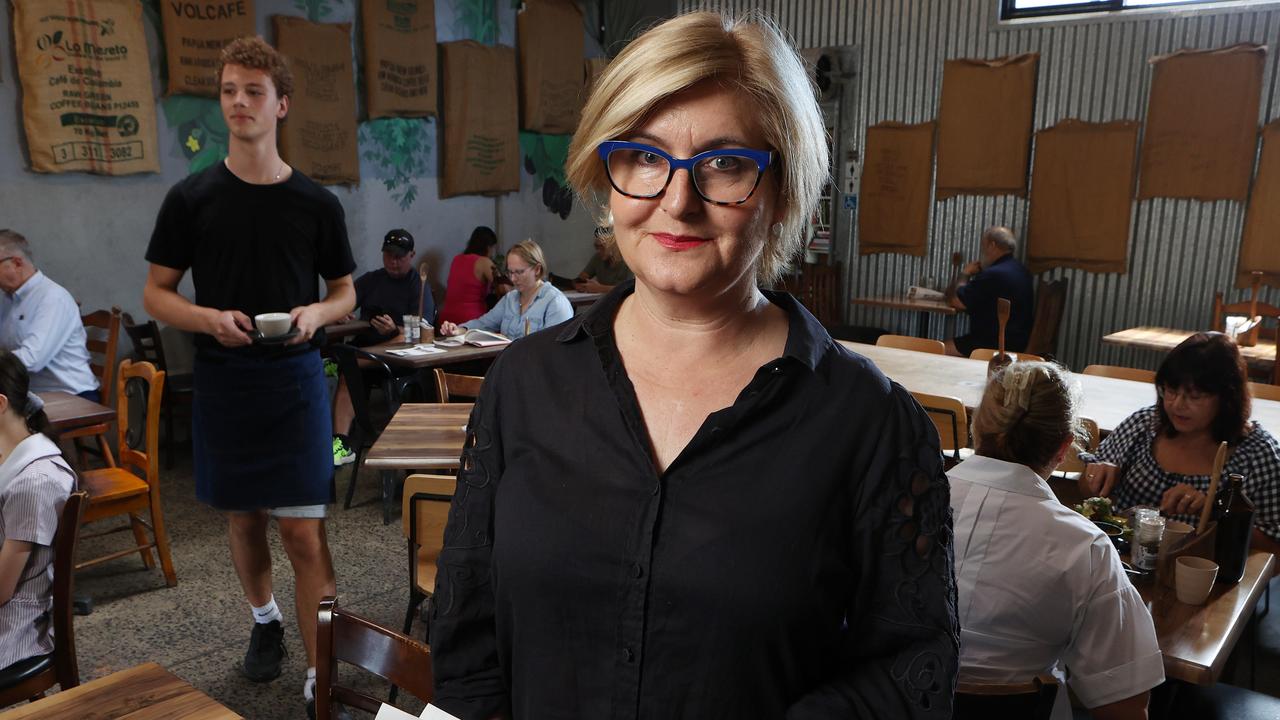Cost-of-living crisis affecting Queensland businesses as customers spend less
Diners are ditching big breakfasts in favour of banana bread and coffee to go, as the cost-of-living crisis hits businesses.
QLD News
Don't miss out on the headlines from QLD News. Followed categories will be added to My News.
Diners are ditching big breakfasts in favour of banana bread and coffee to go, as Queensland businesses battle fresh economic challenges while their regular customers tighten the purse strings.
Owner of Farm House at Brisbane’s Kedron Amanda Scott said the situation was “terrifying” for businesses, as it was unsustainable.
It comes as the Business Chamber Queensland December quarterly report revealed a dramatic deterioration in business confidence across the state, with more than 200 businesses reporting profit loss.
Ms Scott also owns Oh Boy Bok Choy and Miss Sophia’s Gelateria, and said she had noticed a 10 per cent decrease in her venues in the past two weeks alone.

“On the weekends there aren’t fewer people but we do have more people either asking to share a meal, recently we’ve had people book in tables of ten and just ordering banana bread and coffee,” she said.
But Ms Scott isn’t the only business facing the issue, Willow and Spoon owner Keith Nunns said he had also noticed strange habits from consumers recently.
“Lighter dishes at a lower price point have been really popular. Trade has been strange,” he said.
“It’s a bit of a mix, some people want just coffee, muffins, more sort of morning tea as opposed to a meal.”
It comes as fresh consumer data collated by financial comparison site Finder found that Australian households had become increasingly worried about their bills and were now in “survival mode.”
Four in five Aussies admitted having to reduce their spending to cover the rising cost of living, with the younger and more frivolous generations feeling most stressed due to having fewer savings.
Groceries, petrol and energy price hikes remained the biggest cost challenges, with 43 per cent of Aussies worried about not being able to afford food compared to just 23 per cent in March 2021.

Small business owner Paul Milevskiy, who operates The Torque Team at Mansfield in Brisbane said energy prices were among his key challenges for the year ahead, alongside rising interest rates and a tight labour market.
“We’re not a big energy user but prices have increased, as well as on things like oil, filters and parts, everything has gone up,” he said.
“Like most businesses we have loans which means some of our profits are going into paying higher interest rates. But it also slows the economic environment because people are less likely to spend.
“We’re an auto repairs workshop so when people are uneasy about the economy they’ll put off getting their car serviced.”
BCQ chief executive Heidi Cooper said while Christmas sales had reflected pre-pandemic levels, businesses were anticipating a huge decrease in spending throughout 2023.
“Close to half of the (435) businesses surveyed expected the Queensland economy to perform weaker over the next 12 months and 53 per cent expected the national economy to perform weaker,” Ms Cooper said.

Queensland’s hospitality and tourism sectors are expected to be hit hardest.
Queensland Tourism Industry Council chief executive Brett Fraser said there was no question rising cost-of-living pressures were being felt and international spenders would remain critical for long-term survival.
“The recovery of the tourism sector has been buoyed over the last two years by a thriving domestic market. Although many Australians are tightening their belts and our operators are feeling the pinch of strict family budgets,” Mr Fraser said.
“It’s critical now, for the long-term success of the tourism sector, for international guests to return to our shores.
“We know that overseas visitors stay longer and spend more.”
Meanwhile, National Retail Association chief executive Greg Griffith said retailers too were “feeling the pinch”, and the fewer customers who were still spending were opting for cheaper products.
“Consumers are being a bit tighter, they are looking for great opportunities,” Mr Griffith said.
“What we are potentially seeing from the feedback from members – consumers are switching to cheaper brands as consumers manage what they need, they are potentially buying less but they are buying less more often.”
More Coverage
Originally published as Cost-of-living crisis affecting Queensland businesses as customers spend less









